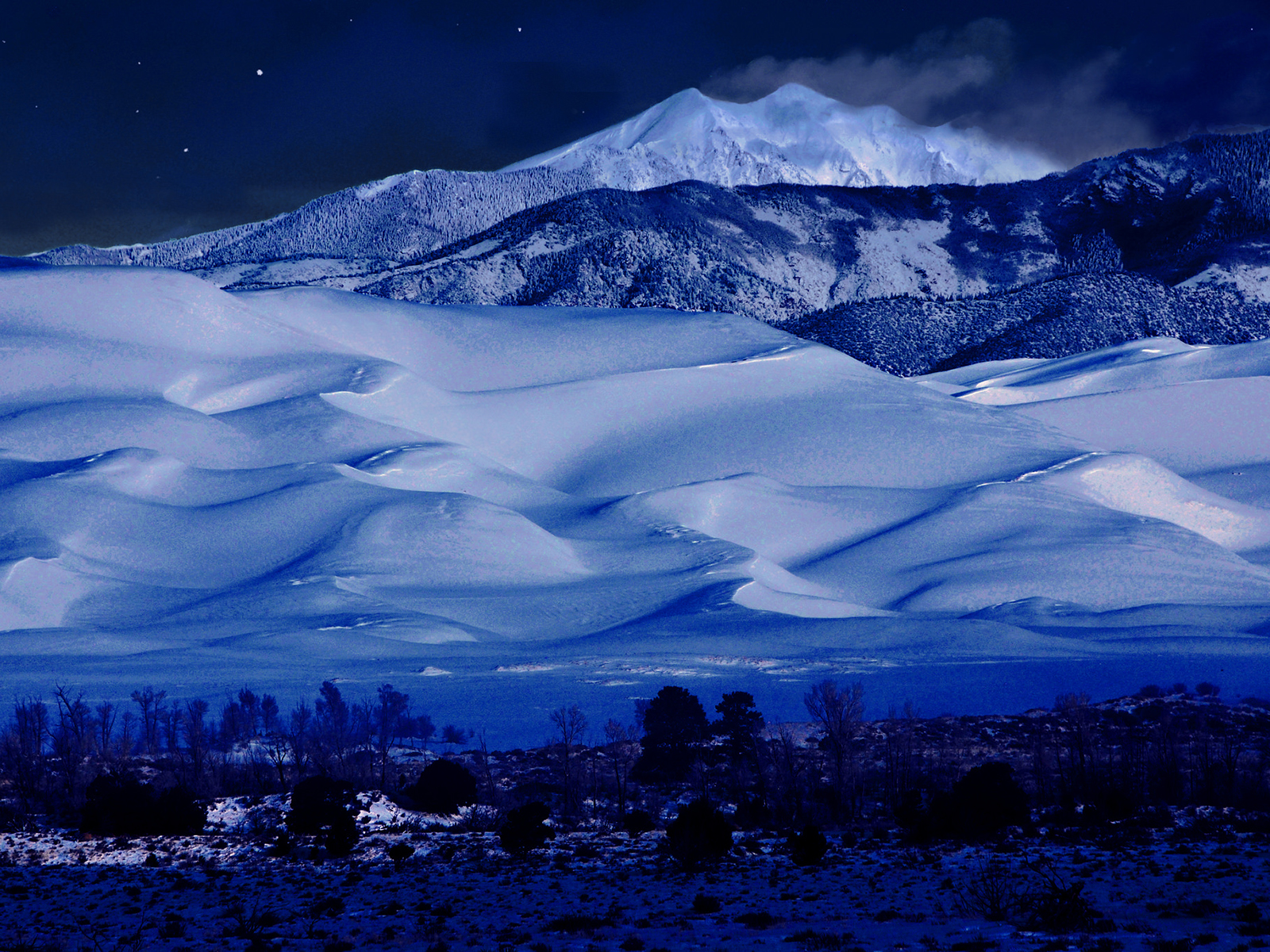The Local newsletter is your free, daily guide to life in Colorado. For locals, by locals.
When the federal government shutdown ended on January 25, it was the longest government shutdown in U.S. history. Over the course of those 35 days, reports surfaced of damage to places like Joshua Tree in California, where campgrounds closed due to near-capacity pit toilets, trees were allegedly cut down, and motorists went off-roading. Colorado’s four national parks—Rocky Mountain National Park, Great Sand Dunes National Park and Preserve, Mesa Verde National Park, and Black Canyon of the Gunnison National Park—saw different challenges, some of which are causing ripple effects now that the government has reopened and parks have resumed operations.
“In some ways, the snow really protected the park,” Esther Rivera Murdock says. Rivera Murdock is executive director of the Rocky Mountain Conservancy, nonprofit partner to RMNP. “It limited access which was unfortunate, but it also served as a bit of a resource protection just in that it was harder for people to get into the park.”

Park staff are back to work and currently assessing damages and planning projects for the coming year. As they identify needs, these partner organizations are coming alongside them to meet the needs in terms of both funding (the parks, as federal entities, can’t accept donations, but these nonprofits can), advocacy, and manpower.
Rocky Mountain Conservancy
Partner to RMNP since 1931, the Rocky Mountain Conservancy fundraises for the park, runs stores and visitor centers, and gives the proceeds from those stores back to the park to fund everything from educational programs to trail work and maintenance projects. The Conservancy staffed the park visitor centers during the shutdown, since the park didn’t close completely, but they lost about $45,000 in store revenue—revenue which funds everything from the informational newspaper given to visitors on entry to livestock leasing for wilderness projects in the backcountry. “We’re oftentimes a very quiet partner in the projects that we do, but [the projects] are very core to park operations,” Rivera Murdock says.
The Conservancy typically works with RMNP to plan the next year’s projects in December and January, so the shutdown set that process behind schedule. They’re currently working with the Park Service to catch up and plan this year’s initiatives.
How you can help: Join or give to the Rocky Mountain Conservancy online, sign up for volunteer service projects, or purchase an RMNP specialty license plate. All funds from license plate donations directly support RMNP projects and programs.
Mesa Verde Foundation
Though it was supposed to remain open, snow and rock slides on the main road into Mesa Verde National Park closed it during the shutdown. “Normally, obviously, they would be clearing the roads, they would be watching for rock fall, moving the rocks, or even mitigating before there was rock fall,” Janet McFarland Burlile, executive director of the partnering Mesa Verde Foundation, says. “Mesa Verde was completely shut down because the road was impassible.”
The park is still assessing its needs in light of the shutdown, but the Foundation is actively seeking signatures to get a specialty Colorado license plate for the park and it’s continuing to fundraise for other projects, including a new visitor orientation film, campsite food lockers to keep bears away, and field trip transportation for area schools. “Our primary role is to raise and provide private funding to the park for capital and educational projects that aren’t met under the federal budget,” McFarland Burlile says.
How you can help: Sign the license plate petition or give a donation.
Friends of the Dunes
“When everybody went back out to work at the dunes, everybody was very happy to find out that the trash had been put in the dumpsters. One toilet had to be emptied, but it wasn’t filthy,” Lucy Adams, president of Friends of the Dunes and nonprofit partner to Great Sand Dunes National Park & Preserve, says. The Friends mainly focuses its efforts on educational programs and conservation efforts that the park doesn’t have capacity to do itself. They sponsor the park’s Junior Ranger Program, purchased GPS collars to aid management of elk herds in the park, and provide reservable child- and adult-size wheelchairs to increase accessibility to the park.
How you can help: Join or donate online.
Friends of the Black Canyon of the Gunnison
Black Canyon of the Gunnison National Park tends to quiet down in the winter. Mostly local visitors come to the park to snowshoe and cross-country ski and the shutdown didn’t change that. Although the visitor center closed, the park gates stayed open. “We didn’t really see any major impacts, no vandalism that we were aware of,” Sandra Snell-Dobert, public information officer for the park, says. According to her, other than messy restrooms and full trash cans, visitors did a good job of caring for the park.
Friends of the Black Canyon just started last year at the encouragement of the park’s superintendent. They’re currently gearing up for a membership drive and fundraising efforts so they can start tackling projects that the park hasn’t been able to work on.
How you can help: Donate or become a friend online.
National Parks Conservation Association
An advocacy partner for the United States’ National Parks, the National parks Conservation Association or NPCA has an established presence and almost 12,000 supporters in the state of Colorado. Since the shutdown ended, Tracy Coppola, NPCA’s Colorado Program Manager, has been reaching out to park superintendents and friends groups to find out what they need. “One of my main priorities is to help grow a community of park advocates here in Colorado,” Coppola says. NPCA endorsed the Colorado Outdoor Recreation and Economy Act which was recently introduced to Congress and aims to protect public land in Colorado, add new wilderness areas, and preserve outdoor recreation in the state.
How you can help: Give or join online.








